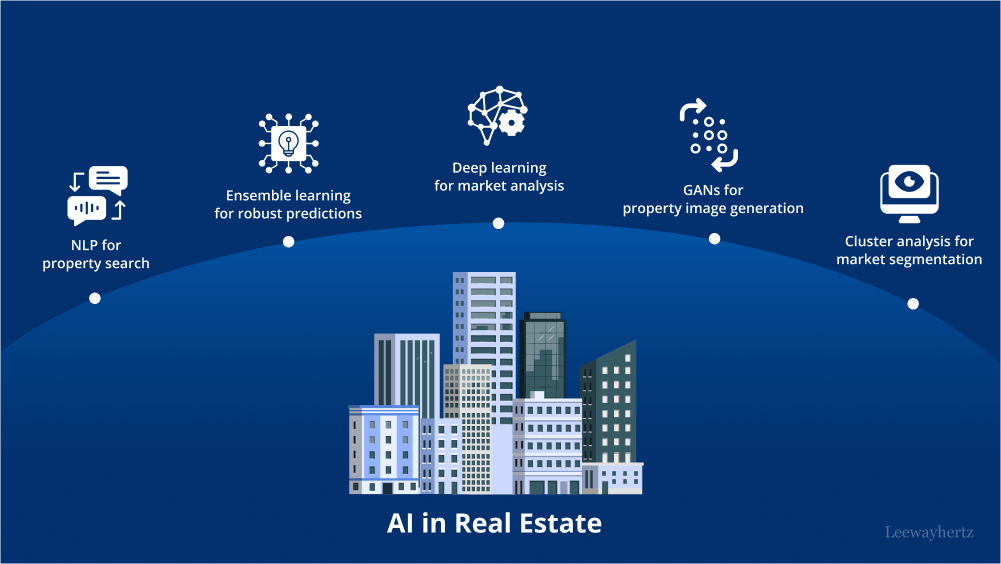Artificial Intelligence (AI) is reshaping the real estate industry, offering smarter solutions and driving innovation across property buying, selling, investing, and management. Understanding the breakthroughs in AI is essential for professionals and consumers alike as technology redefines how real estate operates.
What Does AI Bring to Real Estate?
AI in real estate refers to the use of machine learning, predictive analytics, and automation to streamline processes, enhance customer experience, and provide data-driven insights. These advancements not only improve efficiency but also open new opportunities for growth and personalization.
Key Breakthroughs in AI and Real Estate
Predictive Property Valuation
AI-powered platforms can now analyze vast amounts of market data to predict property values with high accuracy. By factoring in neighborhood trends, historical pricing, local amenities, and economic indicators, AI helps buyers, sellers, and investors make informed decisions faster.
Virtual Tours and Property Visualization
AI enhances the property viewing experience with 3D virtual tours and augmented reality tools. Potential buyers can explore properties remotely, visualize home renovations, or even stage interiors virtually — saving time and improving engagement.
Smart Property Recommendations
Just as AI powers personalized recommendations in e-commerce, it now drives smarter property matching. Based on user behavior, preferences, and financial capacity, AI systems suggest the most suitable properties, enhancing buyer satisfaction and conversion rates.
Automated Customer Support and Chatbots
AI-driven chatbots and virtual assistants provide 24/7 support, answering inquiries, scheduling appointments, and guiding users through the buying or renting process. This reduces workload for agents and ensures consistent communication.
Fraud Detection and Risk Analysis
AI helps detect unusual patterns in financial or transactional data, identifying potential fraud or credit risk. This is crucial in mortgage approvals, tenant screenings, and real estate transactions, ensuring higher security and trust.
Smart Building Management
AI technologies are being used to optimize energy use, automate maintenance schedules, and enhance tenant experiences in commercial and residential buildings. This leads to better operational efficiency and cost savings for property managers.
Market Trend Analysis
AI tools can track and forecast real estate market trends with precision, providing insights into demand patterns, investment hotspots, and economic shifts. These analytics are vital for developers, investors, and policymakers.
Challenges and Considerations
While the breakthroughs are impressive, real estate professionals must also be aware of:
- Data Privacy Concerns: Handling sensitive user and transaction data responsibly is critical.
- Bias in Algorithms: AI models must be carefully trained to avoid reinforcing biases that could affect fair housing and lending.
- Technology Adoption: Integrating AI tools requires training, infrastructure, and a shift in traditional workflows.
Conclusion
AI is driving a revolution in real estate, offering powerful tools for smarter, faster, and more personalized experiences. From virtual tours to predictive valuations, the breakthroughs in AI are making the industry more efficient and transparent. Embracing these technologies with a focus on ethics and user trust will be key to unlocking the full potential of AI in real estate.







Leave feedback about this